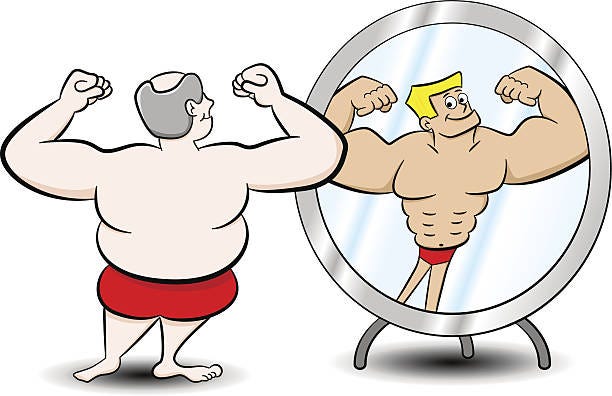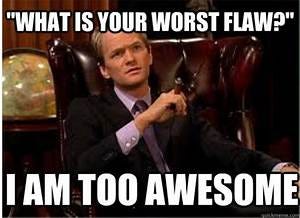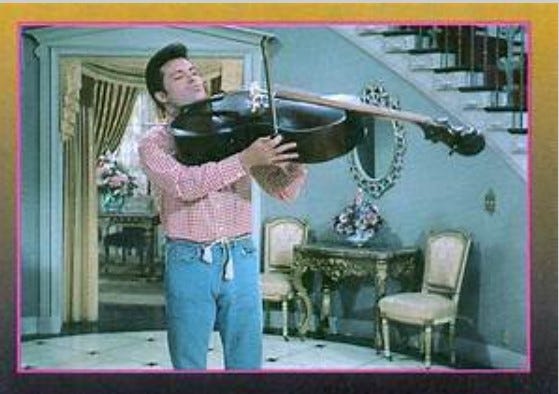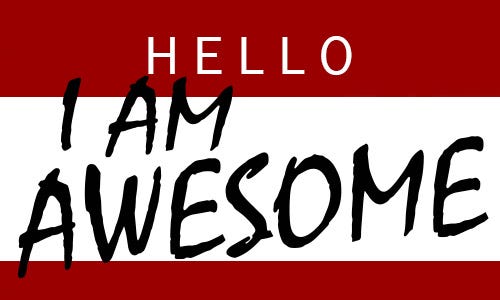Navigating Self-Evaluations: A Humorous Take on Career Insights
Written on
Chapter 1: The Art of Self-Evaluation
Shakespeare famously advised, “To thine own self be true,” but when it comes to reporting to your boss, a little embellishment might be in order.

In my American workplace, every employee is required to complete an annual self-assessment. This is subsequently reviewed by their supervisors, presumably to foster genuine self-reflection and acknowledge areas needing improvement. However, let’s face it—admitting shortcomings isn’t exactly our forte.
Humility isn’t a strong suit for many of us.
As a result, each year, leaders are inundated with glowing accounts of self-proclaimed achievements, regardless of their actual significance, while opportunities for growth are hardly mentioned. These self-evaluations often resemble overly optimistic exercises in self-admiration rather than sincere reflections. And yes, there’s a catchy tune for that!

During interviews, I typically pose questions that gauge self-awareness. The first prompts candidates to discuss their strengths, which they readily do. However, when it comes to weaknesses, about 80% of them fall silent, struggling to dig beneath their inflated egos for even a single flaw. Some never identify any—perfect in their own eyes!
Those candidates don’t make the cut. I’m not seeking perfection (if such a thing exists); I want individuals who are self-aware and open to growth. Starting from a place of “perfection” leaves nowhere to go.
The final question in my series asks candidates to advise their former supervisors. I’m often astonished by how quickly they criticize their previous bosses, believing they could have performed better in those roles.
In contrast, many Asian cultures demonstrate a different dynamic. They often exhibit excessive humility, sometimes to the point of shying away from genuine praise. While some of this humility may feel contrived, it still provides a better foundation than the American approach of celebrating self-perceived perfection.
Take the Japanese concept of “Kenkyo,” which emphasizes modesty about one's abilities. If you ever compliment a Japanese person on something simple, like their shoes or English skills, watch them blush, avoid eye contact, and humbly deny the praise at least once.
Now, imagine telling an American the same.
“Nice shoes” would likely elicit a response like, “Right! These are the new Jordans. You wish you had some.” And praising an American’s language skills might just prompt them to boast about how effortlessly they’ve mastered it.

Americans are often seen as brash and loud, and traveling reveals we can sometimes be the butt of many cultural jokes. We fail to acknowledge the obvious: we’re not unique, we’re not flawless, and there’s much we could learn by listening more and talking less.
Instead, we bumble through life with little self-awareness. Recent examples of American tourists include:
- Taking selfies at Auschwitz for social media likes.
- Stealing fragments of Birkenau’s train tracks.
- Carving initials into ancient ruins.
- Engaging in inappropriate acts on iconic landmarks.
- Jumping out of jeeps to pet lion cubs.
As my colleagues prepare their self-assessments, I anticipate reading numerous overly positive reflections. It won't be surprising. My long-term aim is to guide my team toward more realistic self-evaluations that can foster genuine personal and professional growth.
If they’re open to it, they’ll benefit. If they’re not ready to accept that we all have room for improvement, then perhaps it’s just not their time.
I learned the value of honest feedback long ago, and though it stung initially, those corrections were transformative. A good leader functions like a chiropractor; each adjustment leads to improvement. Eventually, I began actively seeking critique, even annoying friends and family with my requests for feedback.
A well-intentioned critique, when delivered with kindness, is a true gift.

Yet, as an American, my self-evaluation this year will likely lean toward the positive side—not because I think I excel at my job, but because I dread admitting a flaw my boss hasn’t noticed. It would feel like putting lip balm on a cold sore! As comedian Mitch Hedberg would say, “It’s like cold-sore-highlighter.”
This year, my self-assessment will resemble the lyrics from today’s featured track, “Fly As Me” by Silk Sonic. The bold lyrics, confident delivery, and over-the-top visuals encapsulate the quintessential American bravado.
** Sidenote: A fantastic runner-up to this song is Mac Davis's classic, “It’s Hard to be Humble.” I was reminded of this gem during a recent chat with someone my age. The nostalgia hit me like a flash, prompting this reference!
Here’s also Willie Nelson’s heartwarming take on “It’s Hard to be Humble.” Think of it as the dessert to today’s musical meal. Don’t fret about the extra calories; you look fabulous!
DJ Robin Sherman has spent a lifetime entertaining audiences as a DJ, musician, and comedian. Explore more of his passion for music and writing at “There’s a Song for That!” and Virtual Crate Digger.
Some Articles You Might Also Enjoy:
- Yes Virginia, There is a Sid Barrett.
- Hallucinogens, Christmas, and Music: There’s a Song For That!
- Wasted Time is Not Simply Wasted, It’s Lost Forever!
- Trick OR Treat. That’s Extortion: There’s a Song for That!
- There’s No Place Like Milwaukee in Summer!
- Serving Thanksgiving Turkey with a Side of Politics Leaves a Bad Taste.
- Steve Miller and Les Paul: The Value of a Great Mentor.